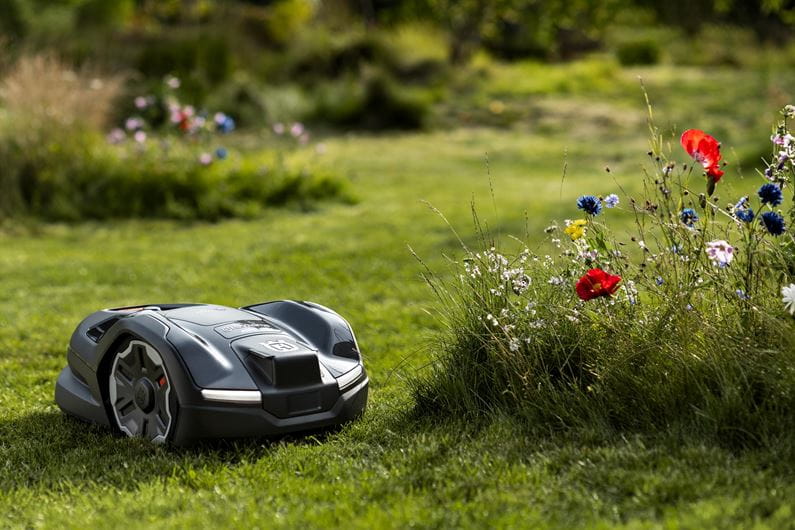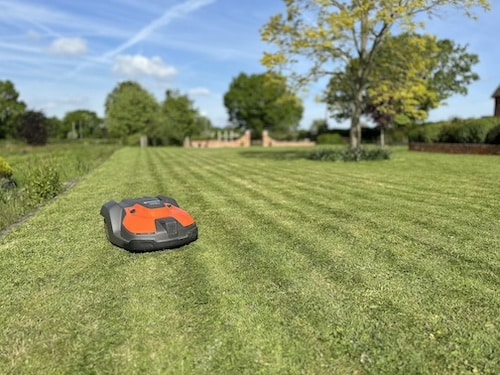Robot mowers give you a beautiful and healthy, looking lawn all year round without needing to lift a finger. But did you know that robot mowers can also be beneficial for people with allergies? In this blog, we’ll take a closer look at the hypoallergenic properties of robot mowers and explain why they may be a good choice for allergy sufferers.
First and foremost, it’s important to understand that a robot mower is not inherently hypoallergenic. It’s not as though robot mowers have been specifically designed to reduce or eliminate allergens, and they still have the potential to stir up dust, pollen, and other allergens as they move across your lawn. However, there are several ways in which a robot mower can be beneficial for people with hayfever or allergies.

One of the primary ways that a robot mower can help reduce allergen exposure is by reducing the amount of time you spend mowing the lawn yourself. Traditional lawn mowers can be very dusty, and they kick up grass clippings and other debris that can cause allergic reactions. When you use a robot mower, you can set it up to run automatically on a schedule, which means you won’t have to spend as much time outside mowing the lawn yourself. This can be particularly beneficial for people with allergies to pollen, as they may find that their symptoms are worse when they spend time outdoors.
Another benefit of robot mowers is that they can be less likely to cause allergic reactions compared to traditional lawn mowers. For example, if you’re allergic to grass pollen, you may find that using a robot mower reduces your exposure to pollen. This is because the mower cuts the grass more frequently and doesn’t create as much dust or debris as a traditional mower. Additionally, because robot mowers typically cut the grass to a shorter height, there is less surface area for pollen to accumulate on the grass blades, which can also help reduce your allergen exposure.

Having a robot lawnmower installed can also be beneficial for people with allergies to dust or mould. When you use a traditional mower, the blades can kick up dust and debris from the ground, which can be particularly problematic for people with allergies to dust. Robot mowers, on the other hand, typically have smaller blades and are designed to cut the grass more cleanly, which can help reduce the amount of dust and debris that’s kicked up into the air.
Additionally, robot mowers are typically battery-powered, which means there are no emissions or fumes that could potentially cause allergic reactions. So if you are someone that suffers from hay fever, a robot mower could be the answer to your problems, whilst creating a beautiful-looking lawn in the process.




